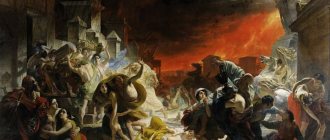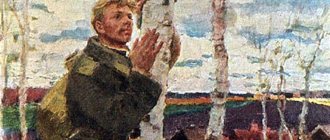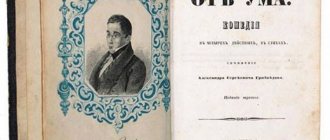The traditions of the Russian people are rooted in ancient times. Many are associated with Orthodox holidays - Easter, Christmastide, Christmas. Maslenitsa is a pagan custom. Celebrating Victory Day and the procession of the Immortal Regiment is a new tradition. The traditions of Russia are not limited to Russian customs. There are other peoples in Russia: their holidays and rituals differ from Russian traditions.
Folk traditions
Traditions and customs can tell a lot about the way of life and the character of a people.
- In Rus', an important element of a healthy life was the bathhouse. It was built on the shore of a reservoir and heated on Saturdays. In the summer they prepared brooms - birch, oak, juniper. Children and adults took a steam bath in the bathhouse; they were sure to visit it before the wedding. The steam room was a favorite remedy against illness. Usually they steamed for a long time, threw themselves into a lake, river, snow several times, or doused themselves with cold water.
- The customs of welcoming guests have not changed much. Dear guests are greeted with bread and salt and seated in a place of honor. The table is covered with a beautiful tablecloth and the best dishes are served.
The hostess baked a round loaf of bread. Families kept loaf recipes. The top of the loaf was decorated with figures of flowers, ears of corn, and clusters of berries.
Rice. 1. Russian loaf.
Essay "Family Traditions"
Inna Terentyeva
Essay "Family Traditions"
My family is big. Me, mom, dad, sisters. But, despite this, we have our own family traditions , which we always observe.
Celebrating New Year and Christmas together is one of the most beloved traditions . We celebrate these holidays with our grandmother. First, we decorate the Christmas tree together, decorate it with toys and garlands, then we congratulate each other on the holiday and exchange gifts. In the evening we sit down to a festive dinner. After dinner we go outside and meet neighbors and friends. We have fun with them. We dance, sing, light sparklers, set off fireworks.
Another family tradition is to spend weekends in the garden. In spring we work in the garden and vegetable garden. I help my mother plant seedlings in the greenhouse, and we plant flowers in the garden. By the end of spring our garden is already fragrant
flowers, and the first vegetables and herbs appear on the table.
In the summer I spend my holidays in the village. I have many friends. We skateboard, bike, roller skate and play outdoor games. As a family, we go fishing, cook excellent fish soup over a fire, and go hiking.
In autumn we go to the forest to pick mushrooms and nuts, and in winter we go skiing. We get great pleasure from communicating with nature!
And the most important tradition of our family is to celebrate bright holidays: Palm Sunday and Easter.
On Palm Sunday we pick willow branches, go to church and bless them. Then we touch everyone with a twig so that there is health and well-being in the family.
Before Easter we do a general cleaning of the apartment. Then my mother and I bake Easter cake and paint eggs. With bated breath, I watch as my mother puts the prepared Easter cake on a festive dish and places unusually beautiful eggs around it. On Saturday morning before the holiday, we go to the morning service at the Church of St. Seraphim of Sarov. There is a special solemnity in the temple, flowers are everywhere, candles are burning, there is a smell of incense. After the service, Father Andrey illuminates the Easter cakes and congratulates everyone on the upcoming holiday. His kind eyes sparkle with the light of joy. On Easter Sunday our family welcomes guests. Everyone kisses and says to each other - “Christ is Risen!”
And another good tradition of our family is a sensitive and caring attitude towards family and friends. We are always ready to rejoice and be sad with them. Of course, these are not all of our family traditions , but they are exactly what I wanted to talk about in my essay. traditions not seem so bright to some
I believe that family traditions are a huge and important value for every family!
Traditions of the peoples of Russia
It is worth telling separately about the rituals of the peoples of Russia and interesting customs:
- Kalmyks are ancient nomads who profess Buddhism. Kalmyk New Year is celebrated on December 22. On this day, lamps are lit in churches, apartments, and on the streets. Gifts to deities are brought to temples. The first days of March mark the beginning of spring. People congratulate each other on the end of the cold weather. In the old days, everyone gathered at churches for common prayer.
- The Yakuts inhabit the coldest region of Siberia. Their cultural traditions are associated with natural phenomena. For example, it is believed that a tree split by lightning can heal. The main animal in the taiga is the bear. Therefore, amulets made from his claws and teeth are highly valued.
Rice. 2. Yakut amulet made from a bear claw.
Intercession
On October 14, people said goodbye to autumn and welcomed winter. It often snowed on this day, which was compared to the bride’s veil. It is on this day that it is customary to get married, because the Intercession gives love and happiness to all people in love.
There are also special rituals for this holiday. For the first time, women lit a fire in the stove, symbolizing warmth and comfort in the house. Branches or logs of fruit trees had to be used for these purposes. This way it was possible to ensure a good harvest for the next year.
The hostess baked pancakes and Pokrovsky loaf. This bread had to be treated to neighbors, and the leftovers had to be hidden until Lent.
Also on this day one could ask the Mother of God for protection for children. The woman stood with the icon on the bench and read a prayer over her family. All the children knelt down.
Young girls and boys were having get-togethers. It was believed that the Mother of God gave protection to everyone who got married on this day.
You can learn more about all traditions in the Foundations of Religious Cultures and Secular Ethics (ORCSE) training course. The customs and rituals of the Russian people are revealed there with maximum accuracy and described in accordance with historical facts.
Modern traditions
Every year on May 9, Victory Day in the Great Patriotic War is celebrated. Military parades are held in major cities. After the parade, the procession of the Immortal Regiment begins. The Immortal Regiment movement was founded in 2011 in Tomsk.
People of all ages take part in the processions, carrying portraits of relatives who took part in the war. This remembrance event has turned into a tradition dedicated to Victory Day.
Rice. 3. Procession of the Immortal Regiment.
Essay in English Traditions in Russia / Traditions In Russia with translation into Russian
An essay in English, Traditions in Russia, with a translation into Russian, is presented.
| Traditions In Russia | Traditions in Russia |
| Every nation has its own culture and traditions. Russia is a unique country with a centuries-old history and long-established national customs. Although, it's a well-developed country with a high level of culture, most holidays and traditions date back to pagan times. | Each nation has its own culture and traditions. Russia is a unique country with a centuries-old history and well-established national customs. Although it is a well-developed country with a high level of culture, most holidays and traditions date back to pagan times. |
| For example, Easter, Christmastide, the Kupala Night, the Shrovetide - all these events have pagan roots. I'd like to say a few words about these holidays and traditions of their celebration. | For example, Easter, Christmastide, Kupala night, Maslenitsa - all these events have pagan roots. I would like to say a few words about these holidays and the traditions of their celebration. |
| Easter in Russia is a glorious feast of Christ's resurrection. It came from Byzantium at the end of the 10th century. Since then, this holiday is widely celebrated throughout the country with beautiful and solemn rites, such as eggs' colouring, kulich baking, paschal greeting, etc. | Easter in Russia is a bright holiday of the resurrection of Christ. It came from Byzantium at the end of the 10th century. Since then, this holiday has been widely celebrated throughout the country with beautiful and solemn rituals, such as egg coloring, Easter cake baking, Easter greetings, etc. |
| There are many interesting events during the Christmastide. Traditionally Russians have kept a 40-day fast before Christmas. On Christmas Eve they've prepared a delicious meal known as “kutia”. It's a porridge made of wheat or barley and mixed with honey. Today, people use rice and dried fruits to cook this dish. On the night of Christmas it was habitual to visit the relatives and neighbors, to eat kutia and sing carols. Young girls would also arrange fortune-telling nights. Most devout people have spent days at the church. | Quite a lot of interesting events during Christmas time. Traditionally, Russians kept a 40-day fast before Christmas. On Christmas Eve they prepared a delicious dish called “kutia”. This is wheat or barley porridge mixed with honey. Today people use rice and dry fruits to prepare this dish. On Christmas night it was customary to visit relatives and neighbors, eat kutya and sing carols. Young girls also performed nightly fortune telling. Most devout people spent all these days in church. |
| On the Ivana Kupala, which falls on midsummer night, people arrange posh celebrations. On this day young girls wear flower wreaths on their heads and sing songs, referencing to love and marriage. | On the holiday of Ivan Kupala, which falls in the middle of summer, people organize luxurious celebrations. On this day, young girls put wreaths on their heads and sing songs about love and marriage. |
| The Shrovetide used to be a holiday of commemoration of the dead. Today, Russians associate this day with the end of winter. They burn a scarecrow and other unnecessary things on this day. They also cook lots of pancakes and organize costumed performances. | Maslenitsa used to be celebrated in honor of the remembrance of the dead. Today, Russians associate this day with the end of winter. On this day they burn effigy and other unnecessary things. They also bake a lot of pancakes and organize costume shows. |
| There are many other traditions in Russia, connected with christening, wedding, funerals, etc. But if you want to get a better understanding of this country, you should visit it during the main religious holidays. | In Russia there are many other traditions associated with baptism, weddings, funerals, etc. But for a better understanding of the country, you should visit it during the main religious holidays. |
What have we learned?
Russian traditions are the basis of modern culture. Folk customs (hospitality, Russian baths), the celebration of Maslenitsa and Easter have been preserved to this day. A story about which traditions have arisen at the present time and which have come from ancient times will be especially useful for children in 2nd grade.
Previous
The world around usReport on diamond as a mineral - description, properties and deposit
Next
The world around usReptiles - which animals belong to the group, list, habitat
Traditions of the Russian people
The Russian people make up about 80 percent of the population of the Russian Federation. Most Russian people are Orthodox. The culture of any nation is unique. Each new generation should know about the traditions of its people so as not to assimilate with other peoples. And since Russia is home to all kinds of peoples, it is important that the heritage of each culture is preserved and not erased over time.
For many, the phrase “Russian people” is associated with a broad soul, simplicity and kindness. Russian people are very hospitable. Russian traditions are better preserved in villages and villages. Some traditions take their roots from the distant past, from a time when Rus' had not yet been baptized.
Many rituals are associated with the institution of family. These include matchmaking, bridesmaids, collusion, rain of abundance, blessing with a loaf, bride kidnapping, ransom, traditional wedding costumes, baptism of children. These traditions promise prosperity, material wealth and health to Russian families. Russian families have also always been distinguished by a large number of children. The head of the family was the father.
Russians have holidays that have been carefully revered for centuries and not forgotten about. These include Christmas, Christmastide, Maslenitsa, Forgiveness Sunday, Easter, Ivan Kupala and many others.
On the night of Ivan Kupala, people go to the rivers, light fires, dance in circles, and jump over the fire. This tradition comes from a belief that says that on this night you can find a fern flower, and whoever finds it will become fabulously rich.
Another interesting holiday is Maslenitsa. It is celebrated for a whole week. Previously, it was believed that on this holiday it was necessary to appease the ancestors with pancakes so that the year would be fertile; a straw effigy was burned in order to spend the winter. Now this ritual has turned into a fun holiday where everyone eats pancakes and is glad that winter is over.
Christmas is filled with kindness. At Christmas, everyone gathers around the table, eats and gives each other gifts.
Easter is associated with forgiveness and equality. There is still a long-standing tradition of baking Easter cakes for Easter, and eating them for the holiday. And young people and children carefully preserve the cheerful tradition of coloring eggs.







